History
INTERVIEW | Gordon Chang: Ending Intelligence Sharing with Japan Makes Sense Only if You’re Pro-North Korea
Published
5 years agoon
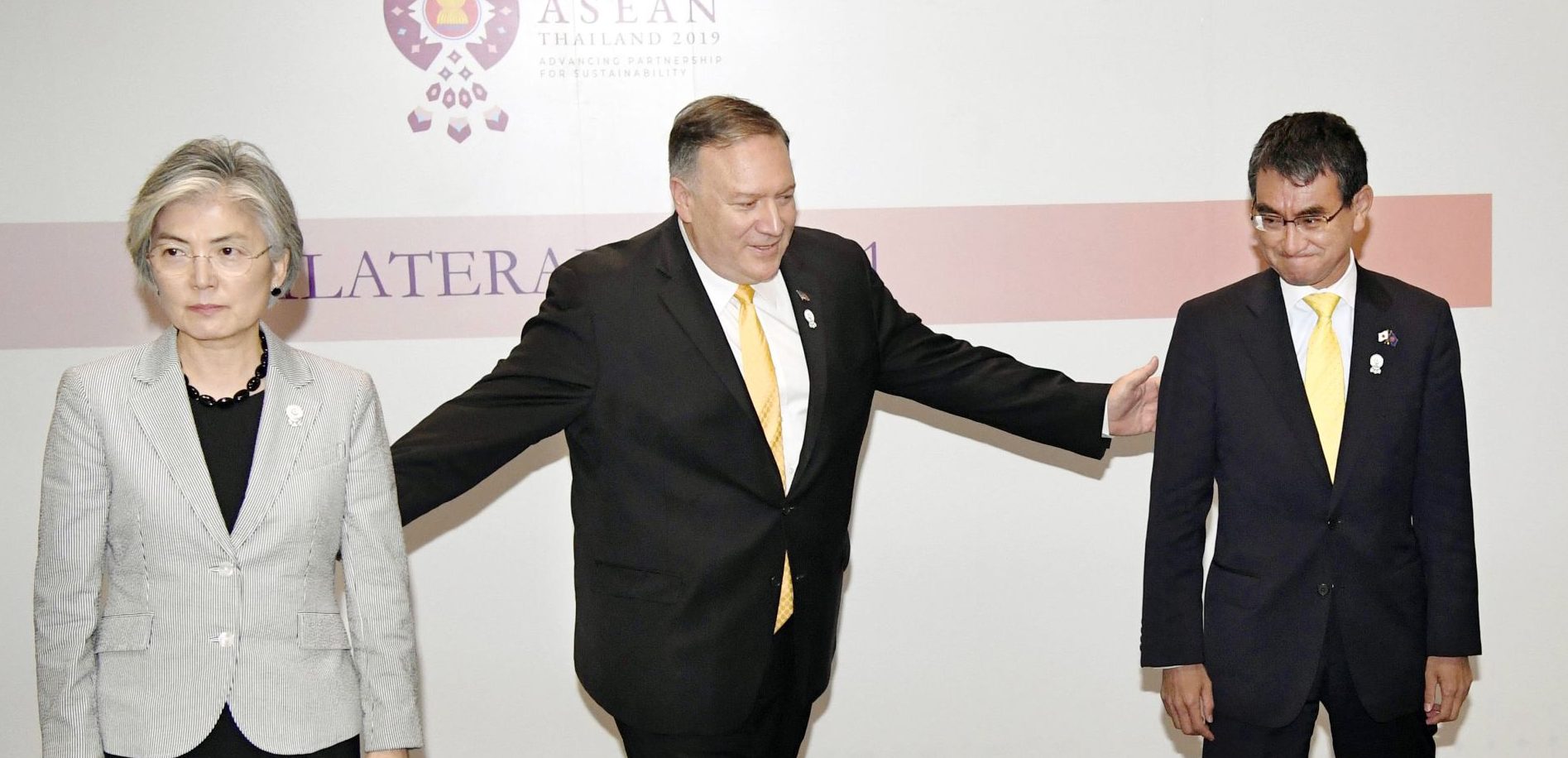
Second of Two Parts
(Part 1: INTERVIEW | Gordon Chang: U.S., China Have Reached Tipping Point)
The respected American scholar on Asian affairs Gordon Chang recently sat down with JAPAN Forward in Tokyo for an exclusive interview about America’s relationship with Japan.
In this Part 2 of the interview, he discusses America’s perspective on Japan-Korea relations, as well as how he thinks ongoing developments in East Asia will impact the Japan-United States alliance.
South Korea spends a lot of money lobbying Congress and the U.S. government to explain their position on the comfort women issue and the labor issue. Are they succeeding?
My sense is that everyone sort of ignored [South Korean President] Moon Jae-in for a very long time because relations between the U.S. and South Korea were very, very good under Obama and [former South Korean president] Park [Geun-hye]. With the termination by South Korea of the military sharing agreement, people started to say, “How did this happen?”
What do you think of Moon’s decision to withdraw from the GSOMIA – the General Security of Military Information Agreement?
Well, it was horrible. Because, between the two, Japan can get by without sharing information with South Korea, but South Korea cannot get by without Japan. South Korea is not defensible without Tokyo’s cooperation.
I think right now there is a real understanding of how bad Moon is. It’s hit a tipping point.
If Tokyo wanted to, it could tell the U.S., “You can’t use the bases in Japan for the defense of South Korea.” Now, Tokyo wouldn’t do it, but if Tokyo wanted to do it, South Korea would become, as a practical matter, indefensible.
So, it is really wrong for Moon to [withdraw from the GSOMIA], because it makes no sense whatsoever if you’re thinking about the defense of your own country. It only makes sense if you’re pro-North Korea. If you’re anti-Japan, anti-U.S., pro-China, pro-North Korea, then that makes sense, but otherwise it doesn’t.
Do you suspect that Moon has a secret arrangement with the North, that this is one step along the way to federation?
I don’t think it’s really that secret. I mean, I don’t know, but if Moon were a traitor, then he would be doing exactly what he is doing now.
In the past, many in the U.S. Congress supported South Korea’s position, especially on the comfort women issue. Do you see the mood of Congress changing?
Yes. Americans really don’t care too much about history in general. We don’t care about our own history, and we certainly don’t care about your history, because we’re just oblivious. So, I think Americans find it a little mystifying that Japan and South Korea have this history issue.
This is partly because Americans don’t really hold grudges. I mean, the British burned down our capital. Do we care? No, we don’t. We talk about the special relationship with the U.K. So we are mystified by the problems between Japan and South Korea.
And we are frustrated by those problems, because, from our perspective, what’s important is today and tomorrow — yesterday is completely irrelevant.
In one sense we understand why it’s important to the Japanese and the South Koreans, but Americans tend to try to ignore that, and because of that I think the Trump administration has not managed the Japan-South Korea relationship as well as it could have.
Now, [the relationship is] not very good at all between the U.S. and South Korea, and it’s not because of anything the Americans have done, it’s because Moon has purposefully tried to undermine the alliance.
You have emphasized the importance of next year’s elections in South Korea.
They’re absolutely critical. South Koreans could lose everything if Moon is able to take control of the National Assembly.
What should Japan and the U.S. do in regard to Moon Jae-in’s ambition to unify the Koreas?
The first thing is that the U.S. needs to speak out in public. People in South Korea want freedom, want democracy, and want their own lives, like things were before.
People in the U.S. have been very quiet about all this. We talk a little bit about the termination of the military sharing agreement, but we haven’t really said very much.
The first thing is for Trump to talk about the dangers of what Moon is doing in undercutting the alliance. We should criticize it openly and say that it’s the wrong move. I think that that would energize the opposition in SK.
What about the Korean economy? A lot of young South Korean graduates come to Japan to find work — but now South Korea seems to be pursuing a policy of intentionally antagonizing Japan.
This does not make sense to most people. It only makes sense if you believe that the most important thing in the world is to unify the two Koreas. Then, everything Moon does fits into a coherent narrative. Otherwise, it doesn’t.
Of course, why would you anger Japan when your economy is so dependent on Japan? But people will say — and I’m not saying this — but things are so irrational that people are saying that Moon’s policy is to deliberately undermine the South Korean economy so that it will be more compatible with North Korea’s.
To lessen the blow when they finally reunify?
Yes. Now, I don’t think that that’s the case. I don’t think Moon is doing that. But this shows you how seemingly irrational what Moon is doing. People are coming up with all sorts of really crazy ideas.
Any closing thoughts on South Korea-Japan relations?
Moon Jae-in defines himself against who he hates, and he hates the Japanese.
When you look at history, if you’re a South Korean, Moon is not the only person who doesn’t like the Japanese, and there’s a reason for that. But the point is, if you carry around ancient history you are not fulfilling your responsibility as a leader. Nobody alive today in Japan was responsible for the colonization of Korea. No Japanese official currently serving today was around during WWII. So the point is, get over it.
The U.S. got over Vietnam, then Vietnamese got over the U.S., and it’s because leaders in Hanoi and leaders in Washington realized that it was in the interest of the U.S. and Vietnam to get past it. They realized that they have a common interest in all sorts of things, so they put history behind them.
That’s what a responsible South Korean leader would do, but Moon is grossly irresponsible. Countries make mistakes all the time. America has made many mistakes. But the one thing Americans do is move on. That’s what Moon has to do.
RELATED ARTICLES:
- September 20, 2019: Japan Needs to Explain to the U.S. Its Policy on South Korea Better
- September 15, 2019: Why Can’t South Korea Say Who’s Using High-tech Chemicals Bought from Japan?
- September 12, 2019: EDITORIAL| President Moon Needs Re-education: It was South Korea that Invaded Takeshima
- August 21, 2019: The First Step Towards Normal Relations is Removing Japan’s Special Treatment of South Korea
- August 13, 2019: Big Majority of Japanese Support Trade Sanctions on South Korea – Sankei-FNN Poll
- July 20, 2019: At the Crossroads: Can South Korea Survive Without Japan?
- July 29, 2019: Kono: Japan Export Controls for Security Purposes, Not Countermeasures Against South Korea
- July 18, 2019: South Korean Firms Violate International Controls on Shipping Materials for WMDs to Iran and Syria
- May 27, 2019: Moon Dictatorship in the Offing? South Korea Faces Tense Political Situation
- February 18, 2019: U.S., South Korea Growing Apart in Policy Over DPRK Policy
- February 13, 2019: INTERVIEW | Dr. Edward Luttwak: It’s A New Cold War with China — and South Korea Waffles
- January 17, 2019: Japan-South Korea Tensions Grow Over Radar Lock-on Incident
- November 29, 2018: EDITORIAL | Dissolving ‘Comfort Women’ Foundation, South Korea Puts Ties With Japan at Risk
Author: Jason Morgan
You may like
-


EDITORIAL | Caution In South Korea as Smear Tactics Prevail in Election
-


Tibetan Buddhism From Mongolia to the Dalai Lama's Legacy
-


How the Emerging China-Russia Alliance Uses Military Drills for Geopolitical Grandstanding
-


South Korea General Election: What Do the Results Mean?
-


Why Give Takeshima Away? A Look at the Real History
-


Birth of an Asian NATO: A New Strategic Alliance Emerges Amid Regional Tensions








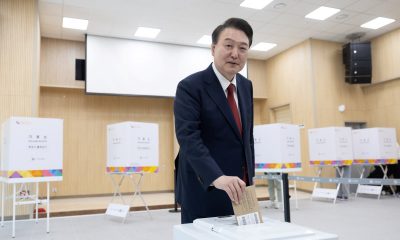

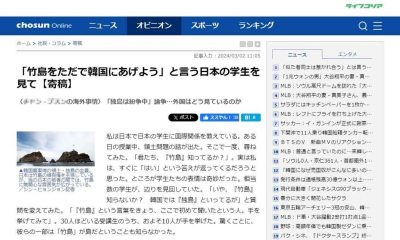

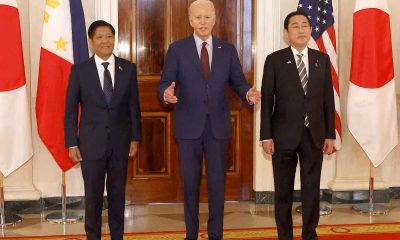


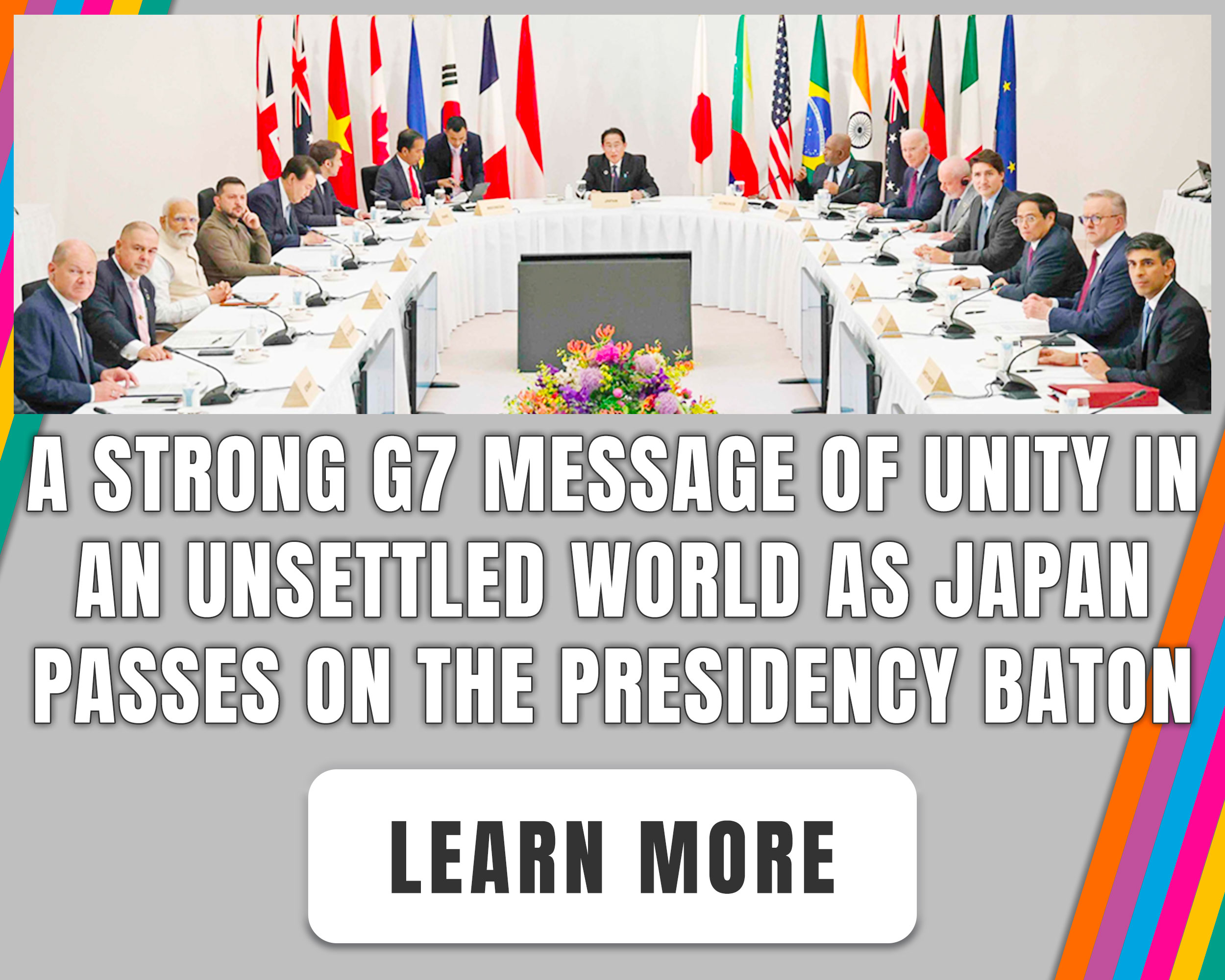
You must be logged in to post a comment Login